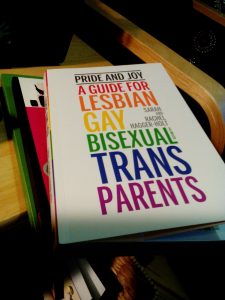Book Review: How to grow a baby and push it out, by Clemmie Hooper
Clemmie Hooper is the new Mark Harris: the midwife all the talk shows want, popular on social media, and with a new, slightly different book about pregnancy and birth. Sorry Mark.
‘How to grow a baby and push it out‘ is a colourful, cheery book, with lots of pictures (mainly of Clemmie herself looking pregnant and glamorous). With a heavy emphasis on what to buy and how best to treat yourself (“Find a really, really lux hotel to stay in.” p101) and an assumption that you will “buy friends” by doing NCT classes, this really is the yummy mummy’s handbook.
I would have quite liked this book during my pregnancy ten years ago. In between the slightly vapid chapters about shopping, it covers a lot of topics, including how to massage your perineum, what to consider when choosing a place to give birth, and different options for coping with pain. With its bite-sized chapters and clear explanations, it is more accessible and less gloomy than the book I did have, ‘What to expect when you’re expecting.’
Reading it now, I would like to see more on consent and informed choice; Clemmie is in a good position to talk about building that kind of trusting relationship with Health Professionals, but at the end of the day she is working within a medical model, and that’s what comes across. The information given about breastfeeding is scant and inadequate, starting with a list of its benefits, omitting any discussion of how it works, conveying the message that it is always difficult and usually painful, and then admonishing readers not to pay attention to pressure about how long to do it for. This could have been done so much better.
I liked the positive tone of the book, although in places the chumminess gets annoying; and I liked the focus on active birth, and the signposting (other than in the breastfeeding section) for readers who would like to explore the many topics in greater depth. It’s a nice starting point for mums-to-be who like a guidebook, but doesn’t really replace good quality antenatal education, where there will be more for partners, and lots of opportunities to discuss what might happen and how you might feel, rather than just be passively told about it all.

